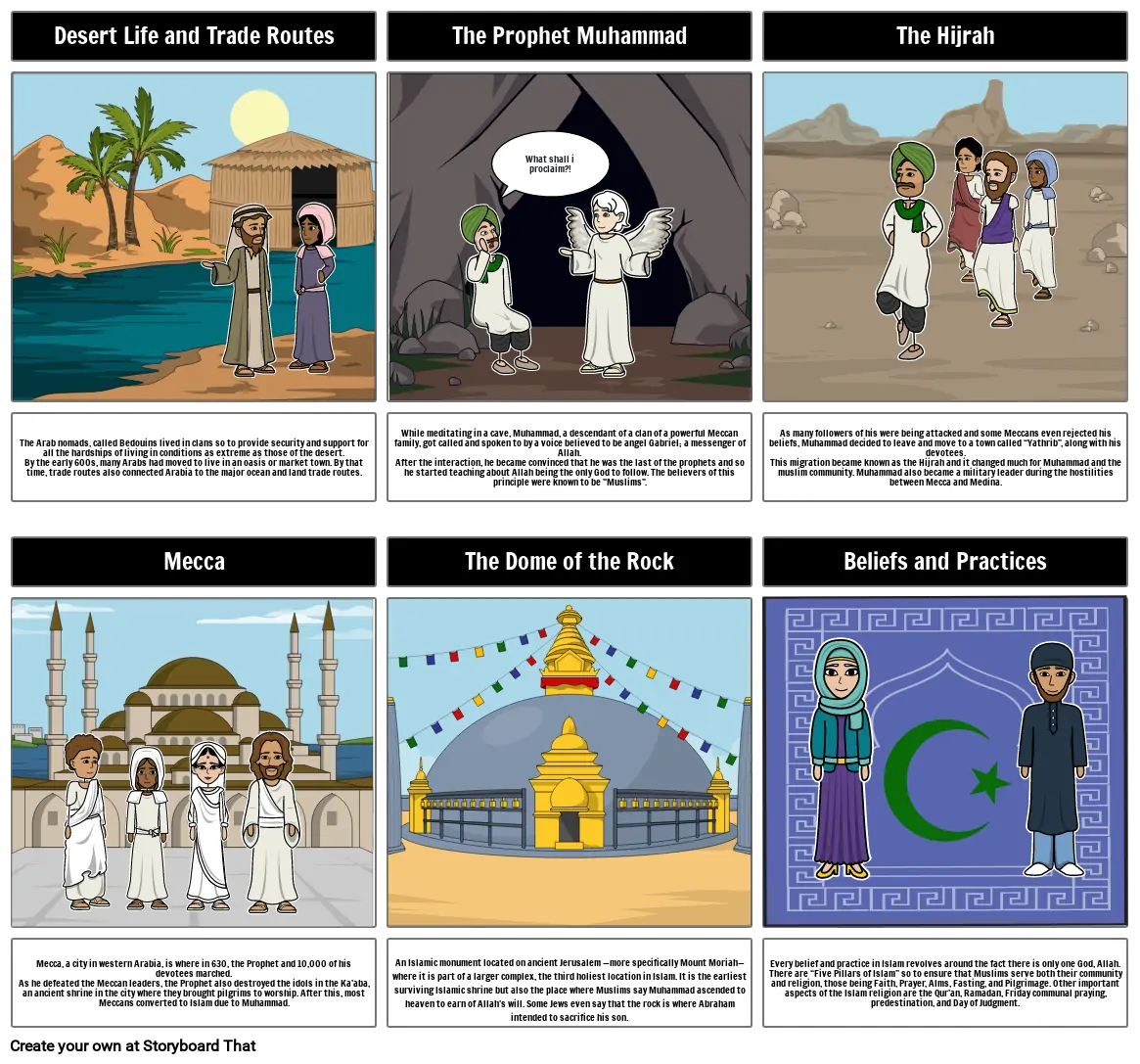The Rise of Islam

Siužetinės Linijos Tekstas
- Desert Life and Trade Routes
- The Prophet Muhammad
- What shall i proclaim?!
- The Hijrah
- The Arab nomads, called Bedouins lived in clans so to provide security and support for all the hardships of living in conditions as extreme as those of the desert. By the early 600s, many Arabs had moved to live in an oasis or market town. By that time, trade routes also connected Arabia to the major ocean and land trade routes.
- Mecca
- While meditating in a cave, Muhammad, a descendant of a clan of a powerful Meccan family, got called and spoken to by a voice believed to be angel Gabriel; a messenger of Allah.After the interaction, he became convinced that he was the last of the prophets and so he started teaching about Allah being the only God to follow. The believers of this principle were known to be "Muslims".
- The Dome of the Rock
- As many followers of his were being attacked and some Meccans even rejected his beliefs, Muhammad decided to leave and move to a town called “Yathrib”, along with his devotees. This migration became known as the Hijrah and it changed much for Muhammad and the muslim community. Muhammad also became a military leader during the hostilities between Mecca and Medina.
- Beliefs and Practices
- Mecca, a city in western Arabia, is where in 630, the Prophet and 10,000 of his devotees marched. As he defeated the Meccan leaders, the Prophet also destroyed the idols in the Ka’aba, an ancient shrine in the city where they brought pilgrims to worship. After this, most Meccans converted to Islam due to Muhammad.
- An Islamic monument located on ancient Jerusalem —more specifically Mount Moriah— where it is part of a larger complex, the third holiest location in Islam. It is the earliest surviving Islamic shrine but also the place where Muslims say Muhammad ascended to heaven to earn of Allah’s will. Some Jews even say that the rock is where Abraham intended to sacrifice his son.
- Every belief and practice in Islam revolves around the fact there is only one God, Allah. There are “Five Pillars of Islam” so to ensure that Muslims serve both their community and religion, those being Faith, Prayer, Alms, Fasting, and Pilgrimage. Other important aspects of the Islam religion are the Qur’an, Ramadan, Friday communal praying, predestination, and Day of Judgment.
Sukurta daugiau nei 30 milijonų siužetinių lentelių

